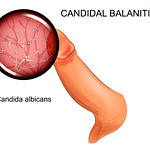How Does a Urinary Tract Infection (UTI) Make You Feel?
When you have a urinary tract infection, or uti, it can feel like your bladder and urethra are swollen. This can make urinating painful and difficult.
Women are more likely to get a UTI than men, because a woman’s urethra is closer to her anus (where poop comes out). Other factors, such as using a diaphragm for birth control and menopause, can also increase your risk of developing a UTI.
Pain while urinating
If you get a painful or burning sensation when urinating, it could be a sign of an infection. Pain while urinating can be caused by many different things, so it’s important to see your health care provider to find out what’s causing your symptoms.
The most common infection that can make you feel pain while urinating is a urinary tract infection (UTI). UTIs cause a burning or itching sensation in your lower abdomen when you urinate.
A UTI is often easy to treat with antibiotics. Your health care provider will prescribe a short course of antibiotics that may help clear up your UTI quickly.
Your doctor may also recommend drinking plenty of fluids and eating healthy foods while you’re taking antibiotics to keep your urine clear. In addition, you might need to take probiotics to help fight off the bacteria that’s causing your UTI.
Other medical conditions that can cause pain while urinating include prostate disease
, interstitial cystitis (IC), and irritable bladder syndrome (IBS). In some cases, pain can be caused by chemicals in your body or by medications you are taking.
If you are getting a burning or itching sensation while urinating, you should see your doctor immediately. Your doctor will look at your medical history and ask you questions about your symptoms to find out what’s causing the pain.
Your doctor may order tests to look at your urine or your vaginal discharge to determine what’s causing the pain. He or she might test your blood for certain STIs, such as chlamydia and gonorrhea. He or she might also do a pregnancy test if you are pregnant.
Frequent urination

A urinary tract infection (UTI) is a common and uncomfortable condition that affects women. It causes a burning or painful sensation when you urinate, and can result in frequent urination.
UTIs are caused when bacteria enter the urinary system and grow in your bladder or urethra. The body’s defenses are designed to keep bacteria out, but they sometimes fail. This can lead to a full-blown infection that needs treatment to get rid of the bacteria and prevent complications.
When you have a UTI, you may also feel like you need to urinate a lot or that your urine is smaller than normal. This is because the lining of the bladder and urethra become red and irritated, which makes it more difficult to empty your bladder.
If you have a UTI, your doctor will prescribe antibiotics to treat the infection and relieve symptoms. It can take a few days for the antibiotics to be effective, but you should start to feel better after the treatment is finished.
Other conditions that cause frequent urination include low estrogen levels, which can affect how your bladder works. These conditions can also be treated with medication and behavioral therapy.
Frequent urination can make your life more difficult and disrupt your day-to-day activities, especially when you have to go to the bathroom more often than usual. It can interfere with your sleep cycle, too.
You can control urination in many ways by drinking more water, eating foods that help your bladder and pelvic floor muscles work properly and using the bathroom as soon as you feel the need to urinate. However, you should call your doctor if the frequent urination doesn’t improve with these methods and you’re experiencing other symptoms that require medical attention.
Cloudy or bloody urine
When you have a urinary tract infection (UTI), it can make your urine appear cloudy. It can also cause pain when urinating and have you feeling an urgent need to urinate even when your bladder is full.
UTIs can occur anywhere along your urinary tract, starting in the kidneys and ending in the urethra or bladder. Infections can also affect the prostate gland, which causes it to bleed.
If you have blood in your urine, it’s a serious sign that something is wrong. It can be a sign of a UTI, kidney stones, cancer or other conditions.
It’s also a sign that you may be dehydrated. That’s because when you are dehydrated, your body produces more concentrated urine.
You should drink more water if you’re dehydrated, which will help dilute your urine and make it less concentrated. If you are having a UTI, your doctor may prescribe antibiotics to treat the infection and get rid of the blood in your urine.
Another reason your urine can look cloudy is because of kidney stones or vaginal discharge. These can make the urine appear cloudy because they mix with it and make it look more like liquid.
STIs, like gonorrhea and chlamydia, can also make your urine look cloudy. That’s because these infections prompt your immune system to produce white blood cells, which then mix with the urine and give it a cloudy appearance.
Diabetes can also lead to cloudy urine because the kidneys don’t have enough blood flow to properly filter the sugar you consume, which then combines with your urine and becomes cloudy. People with diabetes should talk to their doctors about this and other symptoms.
Fever
If you have a urinary tract infection (UTI), you may also feel a high fever. The fever usually goes away in 48 hours, but if it lasts longer or doesn’t go away with treatment, you should see your doctor.
Your urinary tract includes two kidneys and tubes called ureters that connect your kidneys to your bladder. The kidneys filter waste products and excess fluid from your blood, creating urine (pee).
UTIs can happen in any part of your urinary tract. But they are more common in your vulva and bladder than in other parts of the body, like the kidneys.
The bacteria that cause a UTI enter the body through the urethra, a tube that connects the scrotum and the bladder to your intestines. They can multiply in the bladder or kidney, which leads to inflammation.
It’s very important to treat a UTI because it can lead to an infection in the kidneys, which is more serious and may not heal if left untreated. Your doctor can tell you if you have a UTI and prescribe antibiotics that will treat it.
Symptoms usually clear up within a week or so, but you might have to avoid sex for a while until your symptoms go away completely. You might also want to change your pad and tampon more often.
If you do get a UTI, drink lots of water and take antibiotics. You may want to skip drinks that contain caffeine, which can irritate the bladder.
Your health care provider can check for a UTI by taking a clean-catch urine specimen. Then they will diagnose the infection with a test that looks for bacteria in the sample. The antibiotics will treat the infection and make you feel better.
Nausea
Nausea is a common side effect of a urinary tract infection (UTI). If you have nausea, you may feel dizzy and unsteady on your feet. If you experience these symptoms, you should call your doctor.
UTIs occur when bacteria from your bowel or vagina migrate into the bladder, urethra and kidneys. Over 85 percent of UTIs are caused by a bacteria that is naturally found in the body.
This bacteria is usually called E. coli, but it can also be caused by other types of bacteria and viruses. Unlike many other diseases, a bacterial UTI is extremely common and highly treatable.
The most important way to prevent a UTI is to take good care of your genital area. Wipe from front to back, urinate shortly after sex and drink lots of water.
If you’re pregnant, a bacterial UTI can cause birth defects in the baby. But it’s often treatable with a simple course of antibiotics.
Most UTIs are mild and go away on their own, if you get treatment. But some infections can be so severe that they require hospitalization and intravenous (IV) antibiotics.
When you have a UTI, your urine can look cloudy, pink, or red. It can also smell different than usual.
A uti can make you feel like you need to urinate often and have pain when urinating. It can also make you want to urinate but only pass a small amount of urine at a time.
In some cases, a uti can cause pain in the lower abdomen or pelvic area, and even in the lower back. This pain can be quite unpleasant and will make you want to urinate more frequently.











